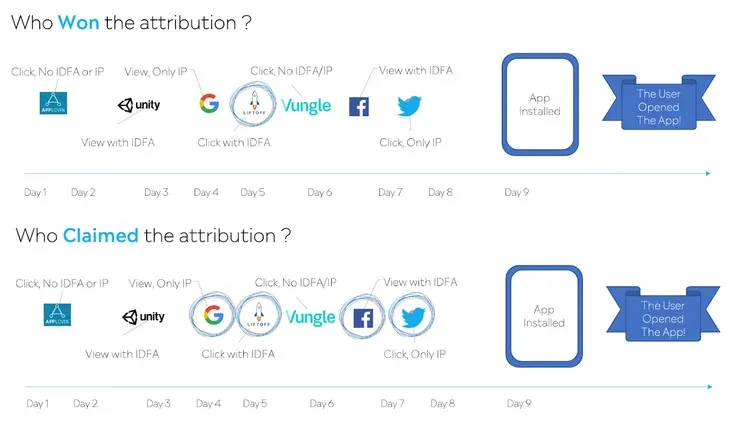Platform
Use Cases
Many Possibilities. One Platform.
AI and Automation
The Always-on Incrementality Platform
Solutions
Teams
Built for your whole team.
Industries
Trusted by all verticals.
Mediums
Measure any type of ad spend
Use Cases
Many Possibilities. One Platform.
AI and Automation
The Always-on Incrementality Platform
Teams
Built for your whole team.
Industries
Trusted by all verticals.
Mediums
Measure any type of ad spend
Attribution Without Device Identifiers

The promise Digital Marketing had to our world was that everything would be trackable. Marketers would be able to make budget decisions based on data gathered from their campaigns, by connecting all pieces of information together and guaranteeing incremental results.
The Adtech industry sole purpose was to enable this goal, but somewhere along the way - user privacy concerns came into the picture, as user right groups advocated towards privacy leading to regulatory action and changes in how data can be shared.
What’s the end goal of leveraging all this data and technology? To attain holistic marketing solutions that tie together planning, targeting, activation, measurement and attribution in one closed loop tied together with data/identity. While there has been significant progress on many parts of this, the weakest aspect of the loop is attribution. (LUMA Partners, DSM 2019)
Attribution platforms help marketers. These solutions track impressions, clicks, and attribute conversions based on where the user saw or clicked an ad before converting.
Attribution used a simple process of matching user identification data passed with impressions and clicks, matched by the same user data once a conversion happened.
Advertisers making budget decisions purely based on these data points ended up with catastrophic results - waste, fraud, wrong decisions.
When looking at the diagram below, it’s clear to see that the notion of “deterministic advertising” can lead to confusion and mistakes:

With user identification being deprecated, marketers who relied on last touch attribution must adapt to a new reality. Attribution has always been a critical part of Advertising. Even without the user identification, marketers have always found ways to attribute advertising activities to sales results.
Turning off Advertising for a period of time in one region to establish a “base line”, followed by reactivation of campaigns gradually in order to measure the value of each campaign, vendor, or medium.
Turning off Advertising in one vendor, or medium, to measure the effect over other activity. Continuing the test upon reactivation of the blacked out vendor/medium to understand the results associated with running activity.
Promo codes have been around for almost one hundred years, allowing Advertisers to create a direct link between campaigns and sales outcomes. While some users may not use the promo code - these do act as a proxy providing insights into how many users used the code to make a purchase, register to a service and so on.
Causal Inference is a data driven method requiring sophisticated algorithms to measure the cause behind marketing results, relating to marketing spend. Understanding causation helps a marketer know what is the value of campaigns, what the value campaigns have on one another, and which campaigns do not bring any value, but are taking credit for users that would use their product organically.
Last touch attribution will continue being available on an aggregate level (such as campaign), allowing marketers to use last touch as a proxy for optimization of creative, and engagement.
The deprecation of user identification forced digital marketers to adapt. The good news is that this adaptation can lead to better outcomes. Focusing on incrementality, rather than last touch, will help marketers unlock the full value of their marketing budget.
Read More: How can you measure incrementality without IDFA or GAID ?

Not only do we need to move from last touch to multi-touch attribution, but the next step is focusing on incrementality. Even once all the touchpoints are known, it’s crucial to know which touchpoints truly drove conversion and which were just noise. This is a very challenging problem to solve, but has begun to garner increased attention. (LUMA Partners, DSM 2019)
INCRMNTAL is an incrementality platform helping marketers measure the value of their marketing spend. Incrementality does not replace mobile attribution, but allows true value measurement.
If you want to learn more, visit INCRMNTAL or book a demo today!

Maor is the CEO & Co-Founder at INCRMNTAL. With over 20 years of experience in the adtech and marketing technology space, Maor is well known as a thought leader in the areas of marketing measurement. Previously acting as Managing Director International at inneractive (acquired by Fyber), and as CEO at Applift (acquired by MGI/Verve Group)